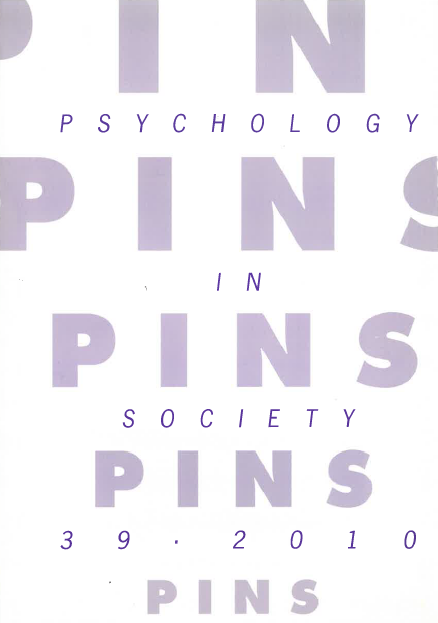RETHINKING AND RE-REMEMBERING PRISON: REIFICATION, AGENCY AND LIMINALITY
DOI:
https://doi.org/10.17159//2309-8708/2010/n39a2Abstract
This article is both a narrative of my experiences as a political prisoner and a reflection on how this understanding has changed over time. The experiences span a period of forty years, insofar as their impact continues to be part of my psychological being. I relate these encounters within the framework of three main categories. Reification, that is, the attempt by prison authorities to turn prisoners into things, which is apparently, applied in general to common law prisoners. Agency, meaning that the political prisoner or potential prisoner has elements of subjective capacity in varying degrees even in the most adverse conditions, such as undergoing torture. The authorities cannot completely control the political prisoners, or may even cede a great deal to them. Liminality is used to connote the notion of my life being in continuous transition from one state of being, free but potentially in prison, in prison but potentially or definitely to be released, though release is subject to the possibility of re-arrest or other dangers. While the article relates my specific experiences it is intended to signify the capacity of people to choose elements of their existence in other difficult situations.
Downloads
Downloads
Published
How to Cite
Issue
Section
License
This journal is an open access journal, and the authors' and journal should be properly acknowledged, when works are cited.
Authors may use the publishers version for teaching purposes, in books, theses, dissertations, conferences and conference papers.
A copy of the authors’ publishers version may also be hosted on the following websites:
- Non-commercial personal homepage or blog.
- Institutional webpage.
- Authors Institutional Repository.
The following notice should accompany such a posting on the website: “This is an electronic version of an article published in PINS, Volume XXX, number XXX, pages XXX–XXX”, DOI. Authors should also supply a hyperlink to the original paper or indicate where the original paper (http://www.journals.ac.za/index.php/pins) may be found.
Authors publishers version, affiliated with the Stellenbosch University will be automatically deposited in the University’s’ Institutional Repository SUNScholar.
Articles as a whole, may not be re-published with another journal.
The copyright of the article(s) lies with the author(s).
The copyright of the journal lies with PINS-psychology in Society.
The following license applies:
Attribution CC BY-NC-ND 4.0 - https://creativecommons.org/licenses/by-nc-nd/4.0/

